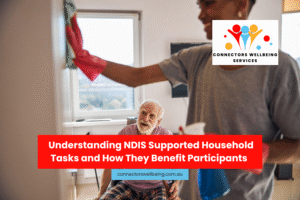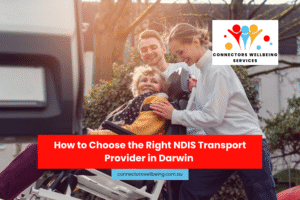What is Life Stage Transition Planning for NDIS Participants?
The concept of life stage transition planning has to do with supporting NDIS participants in preparation to make significant changes in their lives. This assistance is referred to as NDIS life transition support and aids them in performing well at school, employment, and in life at large.
It may involve school to job transition and how to live independently, how to make new friends or acquire new skills. It also has learning and therapy programs. Such a basic proposal can make the participants more confident, acquire valuable skills and be able to become a part of their community.
Why Life Stage Support is Crucial for NDIS Participants
Life stage support for NDIS participants is more than just practical assistance—it’s about fostering independence, self-esteem, and opportunities for growth. Without proper planning, participants may face:
- Difficulty entering the workforce
- Difficulties in independent living.
- Poor access to social or community participation.
- Lack of developmental opportunities.
Key Areas of Life Stage Transition Support
-
- Job readiness training
- Resume and interview support
- Workplace mentorship programs
- Assistance with workplace modifications
- Vocational training opportunities
- Work experience placements
- Career counselling and mentoring
- Life skills workshops
- Cooking and meal planning
- Budgeting and financial literacy
- Personal hygiene and self-care
- Social and communication skills
For younger participants or those with specific developmental needs, NDIS developmental support is essential. Programs may include:
- Speech and language therapy
- Occupational therapy
- Cognitive and social skill development
- Behavioural support
NDIS transition programs are tailored plans designed to support participants through critical life changes. These programs offer:
- Personalised goal setting and planning
- Regular progress reviews
- Collaboration with families, carers, and allied health professionals
- Access to specialist services based on individual needs
- Assistance with housing options
- Home modifications for accessibility
- Daily living support where needed
- Social and community engagement opportunities
How to Assist Life Stage Transition NDIS Participants
- Develop Individualised Transition Plans
Each participant will have different needs. Individual plans need to have precise objectives, schedules, and quantifiable results. - Collaborate with Allied Health Professionals
Psychologists, occupational therapies and vocational professionals may offer in-depth knowledge according to the ability of the individual participants. - Engage Families and Support Networks
Families are important tools in helping participants to go through transitions. Frequent communication keeps all people on track. - Offer Skill-Building Opportunities
Add programs that promote independence, employability and social integration. - Monitor and Review Progress
Life stage transitions are dynamic. Regularly review plans to address evolving needs and celebrate milestones.
Finding the Right NDIS Support in Darwin
- Employment support and school-to-work programs
- Life skills and developmental support
- Independent living support and individualised transition guidance.
Conclusion
Life stage change may be a complicated process, yet NDIS participants can have a successful life at any age with proper guidance and support. From gaining employment and developing life skills to achieving independence, assisting life stage transition NDIS participants requires personalised plans, professional knowledge and continuous support.





